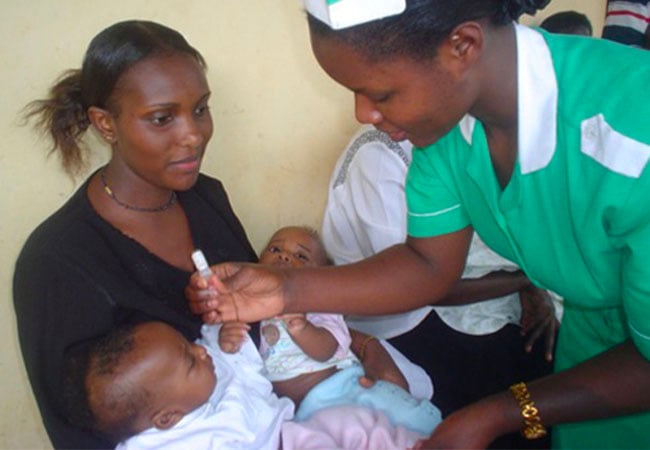
Angela Onwuzoo
A child rights organisation, Save the Children International Nigeria, has urged the Federal Government and stakeholders to intensify efforts toward reducing under-five deaths from vaccine-preventable diseases.
Citing the Multiple Indicator Cluster Survey carried out by the National Bureau of Statistics in 2021, SCI Nigeria said about one in 10 children in Nigeria die before their fifth birthday.
The non-governmental organisation in a statement to commemorate the 2023 World Immunisation Week themed, ‘The Big Catch-Up’, said only 36 per cent of children aged 12- 23 months received all the recommended vaccines in Nigeria.
The organisation said all stakeholders should strive to ensure that no child dies from preventable causes before their fifth birthday.
According to the National Immunisation Coverage Survey carried out by the NBS as part of the global MICS programme, infant mortality rate is 63 deaths per 1,000 live births for the five years preceding the survey, while the under-five mortality rate for the same period is 102 deaths per 1,000 live births.
The neonatal mortality rate, the survey showed, is 34 deaths per 1000 live births while child mortality is 42 deaths per 1,000 live births.
The under-five mortality rate of children born in the poorest households (133 per 1000) was nearly three times the under-five mortality rate for children born in the richest households (47 per 1000).
SCI Nigeria believes that immunisation saves millions of lives, and it is recognised as one of the world’s most successful health interventions.
Acting Country Director, SCI Nigeria, Faton Krasniqi, said the benefits of vaccines were fully realized when children receive all recommended vaccine doses promptly.
“Immunisation coverage in Nigeria is below the Global Vaccine Action Plan goals. Only 36 per cent of children aged 12- 23 months received all recommended vaccines and 18 per cent did not receive any, putting a substantial number of children at risk of vaccine-preventable diseases.
“Substantially, more children are fully vaccinated in the southern zones compared to the northern zones, according to the NICS, 2021.
“Therefore, we would like to urge all stakeholders to continue to build strong political commitment for increased immunisation coverage and other primary healthcare interventions.
“Thus contributing to increased domestic investment in health to meet the Abuja Declaration of 15 per cent in 2011 as against the present eight per cent budgetary allocation to health by Nigeria in 2023 at the national level.
“Save the Children will work with partners and stakeholders towards ensuring that increased health spending directly improves child health services, including removing catastrophic health spending, reducing non-financial barriers to accessing care, and prioritizing primary health services in Nigeria.”
Krasniqi noted that there was an urgent need to empower Ward Development Committees at the sub-national level to drive accountability processes; as well as promote community action; expand the stakeholder base to include local communities including pastoralists to ensure vaccines reach difficult terrains; and strengthen coordination.
The Acting Country Director called for collaboration and the implementation of accountability frameworks for routine immunisation to improve community engagement, so as to increase the uptake of routine immunisation services in Nigeria.
Director of Advocacy, Campaigns, Communication, and Media of SCI Nigeria, Amanuel Mamo, said,” Going forward, we should create an enabling environment and strengthen the three gateways to deliver Basic Healthcare Provision Fund as the principal funding vehicle for the Basic Minimum Package of Health Services.
“These include immunisations integrated with other services and implemented at primary healthcare facilities across Nigeria, using data to drive decision-making, while ensuring the implementation of the zero-dose operational plan.
Leave a Reply